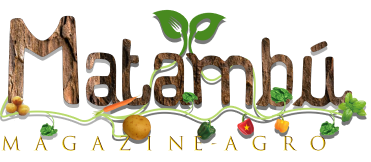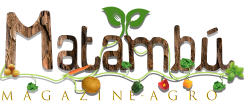Yonas Alemu, an Investment-banker turned agro-processor. He is the Founder and managing director of Lovegrass Ethiopia, a health food company making a variety of products from teff and other Ethiopian grains. The ancient grain teff is regarded as a superfood; high in fibre, gluten-free and packed with vitamins, minerals and protein. The company’s range includes teff-based pasta, breakfast cereals and pancake mix, with plans to launch a new range of snacks before the end of the year.
The Business story
Alemu explained that they started manufacturing in Ethiopia, and competing in the increasingly crowded superfood industry.
From banker to superfood, Entrepreneur Yonas was born and grew up in a farming community in Ethiopia. Some of his earliest childhood memories are getting up before dawn to help out in the teff fields. He moved to Europe after he won a university scholarship. After finishing his education, he joined the finance industry and spent the following 17 years in London working in investment banks like Credit Suisse and J.P. Morgan.
In 2014, he came across teff in some health food stores in London but was perplexed after discovering the teff on shelves came not from its native Ethiopia, but from the US where it is commercially cultivated. Recalling his childhood and how hard the farmers toiled, Alemu decided to start a business selling Ethiopian food products in the global market.
“It has always been a lifelong desire to go back to Ethiopia and work with the community I left behind,” he told a media in a telephonic interview from Addis Ababa. Experimenting in his family’s kitchen and later in commercial food processing facilities, Yonas honed what teff-based foodstuffs he could produce on an industrial scale and settled on pasta as the company’s first product.
In 2016, he quit his job at Credit Suisse and relocated to Ethiopia to get Lovegrass – teff is also known as Williams lovegrass – off the ground. It was always his intention to manufacture within Ethiopia and he secured land on the outskirts of Addis Ababa to build the factory. However, just as construction neared completion, political unrest in the country made Yonas move back to the UK, where his wife and children were still based.
“I had to make a choice on whether to abandon the project or wait for stability to return to the country.” He opted to keep up the momentum by outsourcing production to contract manufacturers in Europe although the raw materials still came from Ethiopia. When the political situation stabilized, Yonas moved back and installed the machinery at the premises and production began in November 2021.
According to the Entrepreneur, it is much cheaper to manufacture in Ethiopia than in the UK, particularly in terms of power and labour costs. He decided to locate his business in Ethiopia with a vision to contribute to the industrialisation of the country. Local manufacturing ventures typically struggle with foreign exchange shortages, excessive bureaucracy, logistics challenges and insecurity in parts of the country.
The Food Company evolving
Lovegrass sources its raw materials directly from farmers, with whom it has long-term supply agreements. The majority of the products are now made in Ethiopia, although the pasta is still processed in the UK.
The Food Company – which currently employs 50 people – is awaiting its BRC food safety certification and Yonas plans to move all its processing to Ethiopia in the next two years. Majority of sales in Europe but significant potential in Ethiopian market Lovegrass’ biggest market is the UK, followed by Ireland, Sweden, Germany and France. Sales are split roughly 50-50 between third-party retailers and its own website.
Yonas explains that after the company won a handful of food industry awards in the UK and France, several large European retailers started stocking its products, including Ocado, Selfridges, Whole Foods and Planet Organic. “The day we first exported [teff] pasta to Italy was probably one of my happiest.” Because Ethiopia doesn’t have much of a reputation for exporting branded food items.
Yonas believes the company needs to go above and beyond what the Europeans expect in terms of quality, branding and packaging. The company has also started selling within Ethiopia, a potential market of over 100 million people. Yonas believes there is strong growth potential there to offer the same product at a competitive price.
Although Lovegrass is entirely self-funded and owned by Alemu and his wife, he is looking to get outside investors on board, to scale up and enter new markets such as the US and Middle East. Heritage as a competitive edge Lovegrass is tapping into growing consumer demand for ancient grains, plant-based proteins and high-fibre foods.
Initially, Yonas had to do a lot of explaining about what teff is but these days there is greater awareness around so-called superfoods like teff, quinoa and chia seeds. But with greater awareness comes more competition. Yonas says Lovegrass differentiates itself by highlighting its origins and its packaging features illustrations of traditional rural life in Ethiopia.
“People love something authentic and original. The competition is getting stiffer, especially from new teff growing countries, but frankly, that doesn’t concern me much. We enjoy the competitive advantages of being in Ethiopia, having our own manufacturing facility and telling an authentic Ethiopian story,” he explains.
Source: HWMIIA










